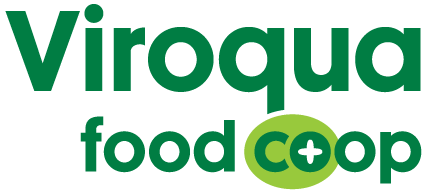Seven Healthy Habits of Environmentally Friendly Shoppers
and how your Co-op can help!
1. Shop the Bulk Aisle
We buy in bulk so you don’t have to. Our bulk bins eliminate excessive packaging and food waste by inviting you to buy as much or as little as you need. Shop Bulk Like a Pro: bring your own reusable container from home to fill. It's as easy as: tare, fill, and go!
2. Eat Local and in Season
Eat fresh and local produce to stay in tune with the growing seasons, support the local food shed, keep valuable dollars in our community, support local farmers, and reduce the environmental impact of transportation and food packaging. You'll never see individually wrapped broccoli heads from our local farmers on our shelves!
3. Choose Certified Organic
We prioritize certified organic products because they are grown and produced without chemical pesticides, herbicides, or fertilizers, making them better for you and the planet. We also love that organic farming methods promote biodiversity, conserve and protect waterways and build nutrient-rich, healthy soil.
4. Eat More Plants
It's no secret that eating more plants is not only better for you, but the environment, too! In a Harvard based study, healthy plant-based diets had lower greenhouse gas emissions which used less cropland, irrigation water, and nitrogenous fertilizer than diets that were higher in unhealthy plant-based and animal-based foods.*
5. Buy Sustainably Raised Meat
The way meat is raised makes a huge difference in its overall environmental impact. The Co-op sources humanely raised meat that is good for the planet. Like grass-fed beef that uses holistic land management practices and grazing strategies called regenerative agriculture. This ensures good soil health, clean and safe water runoff, improved biodiversity and ecosystem resiliency. It also increases carbon drawdown, which is a process of capturing carbon dioxide (CO2) from the atmosphere and locking it away for decades or centuries in plants, soils, oceans, rocks, or long-lived products like cement.
6. Find Eco-Friendly Brands
Many of our products come from brands that have environmental conservation in their mission, which aligns with ours, too.
7. Bring Your Own
Bring your own bags, utensils, and containers. Refill your water bottle. Reduce, reuse, recycle!

